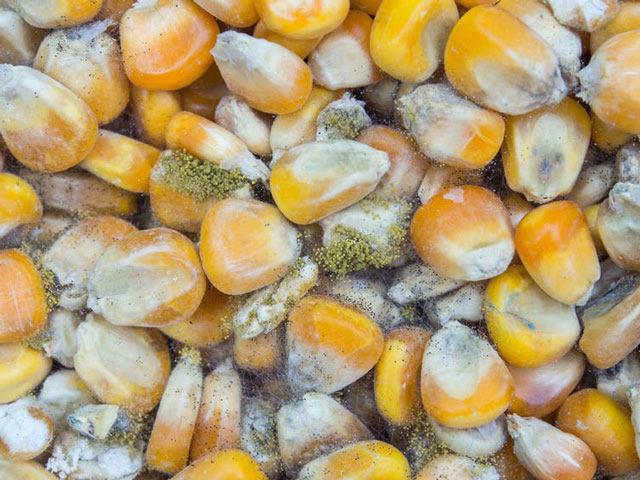
Elegu, South Sudan | THE INDEPENDENT | The majority of tracks carrying grain from Uganda to South Sudan have passed aflatoxin tests, according to the Uganda National Bureau of Standards (UNBS). Out of the 23 tracks and 27 contested consignments tested so far, 18 tracks and 22 consignments have successfully passed the tests. These tracks were part of the 90 vehicles held in South Sudan over a month ago on allegations of transporting poisonous food.
Last week, South Sudan released the 23 trucks after negotiations between the two governments. Upon release, each of the 27 different commodities carried by the trucks was subjected to testing. The commodities included maize grain, maize corn, dry beans, sorghum grains, cassava flour, and finger millet grains.
Livingstone Ebiru, the Executive Director of UNBS, explained that these commodities were tested according to the East African Community standards agreed upon by all member states, including South Sudan. The tests focused on aflatoxin levels as South Sudan had accused the food of having excessive amounts of aflatoxins, rendering it unfit for human consumption.
Ebiru stated that out of the 23 trucks, four out of the eight carrying maize grains failed the test. Among the 12 trucks carrying maize flour, one failed. However, both consignments of beans passed the test, along with three for sorghum, one for millet grain, and one for cassava flour.
“As you have seen, the failure majority were for maize grain, four of the five were grain, and only one was flour therefore our maize grain remains exposed to quality standards and our appeal is that people should focus on value addition, converting them to flour to minimize the exposure,” he added.
Harriet Ntabaazi, the Minister of State for Trade, warned that the government would not allow the loss of the South Sudan market due to the actions of a few irresponsible individuals. She highlighted the importance of the South Sudan and DR Congo markets, which the government is targeting.
Several measures have been implemented and more are being developed to address the issue of exporting and selling substandard food, as South Sudan is the second country in the region to intercept Ugandan grain for similar reasons.
For the consignments that failed the test, the minister mentioned that they would be destroyed, and the owners would be engaged to determine the source of these products.
Henry Musisi, the Executive Director of the Uganda Grain Council, urged the government to enforce and implement the grain trade policy, which he believes is the solution to the ongoing complaints regarding Ugandan maize in the region.
*****
URN
 The Independent Uganda: You get the Truth we Pay the Price
The Independent Uganda: You get the Truth we Pay the Price


